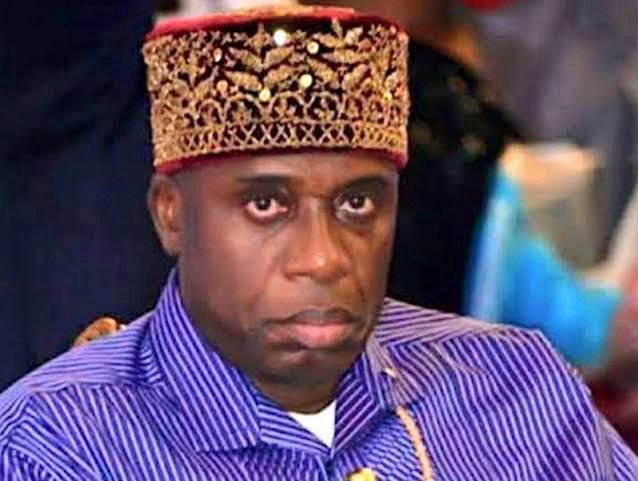Mr Rotimi Amaechi’s tenure as Nigeria’s Minister of Transportation (2015–2022) was a study in ambition and excess, vision and self-sabotage. Entrusted with a critical sector under President Muhammadu Buhari’s administration, Amaechi’s grandiose plans and unapologetic leadership style earned him both accolades and scorn. Ultimately, his legacy stands as a reflection of the unfulfilled promise of transformational leadership weighed down by hubris.
Amaechi’s time in office was dominated by ambitious infrastructural projects. His efforts to revitalise Nigeria’s moribund rail system were among the Buhari administration’s flagship achievements. The Abuja-Kaduna railway line, completed in 2016, and the Lagos-Ibadan rail project, launched in 2021, underscored his commitment to modernising transportation. Yet, these projects were financed by substantial Chinese loans, raising concerns about Nigeria’s rising debt profile and the long-term economic implications of such dependence.
Amaechi also championed the $195 million Deep Blue Project, aimed at combating piracy in the Gulf of Guinea. While the initiative significantly reduced maritime crime in the region, questions linger over its opaque expenditure and the actual financial commitments surrounding the project. It became emblematic of Amaechi’s tenure—commendable on the surface, yet burdened by controversy.
Amaechi’s hubris extended to his handling of other critical issues within the maritime sector. His dismissive labelling of Nigerian shipowners as portfolio shipowners alienated key stakeholders and stoked resentment in the industry. His repeated promises to float a national carrier and disburse the long-awaited Cabotage Vessel Financing Fund (CVFF) proved hollow, further eroding trust.
In these failings, Amaechi revealed a recurring flaw: grand pronouncements without sustained follow-through. His vision for a self-reliant maritime industry remained largely unrealized, and his confrontational style hindered collaboration that could have spurred progress.
Amaechi’s public spat with Hadiza Bala Usman, the former Managing Director of the Nigerian Ports Authority (NPA), remains a subject of interest in Nigerian politics. The conflict between the two began when Amaechi, then Minister of Transportation, obtained the approval of President Buhari to suspend Bala Usman from her role as NPA MD. Bala Usman responded by accusing Amaechi of lying and trying to cover up his own misdeeds. She also claimed that Amaechi’s actions were motivated by a personal vendetta against her. The public exchange of accusations and counter-accusations damaged Amaechi’s reputation, with many Nigerians perceiving him as arrogant and vindictive. The spat also led to a wider investigation into the activities of the NPA and Amaechi’s role in the suspension, and eventual sack, of Bala Usman. The controversy surrounding the issue raised questions about Amaechi’s leadership style and ability to work with others.
In her book, “Stepping on Toes: My Odyssey at the Nigerian Ports Authority,” Bala Usman provided more insight into the circumstances surrounding her suspension and the conflict with Amaechi. The book reinforced the perception that Amaechi’s actions were driven by personal interests rather than a genuine concern for the welfare of the NPA or Nigerians.
Amaechi’s speeches often betrayed his overinflated sense of self. During a recent address at a Transport Summit in Lagos, his words were dominated by the pronoun “I,” presenting himself as the singular architect of all achievements while deflecting blame for failures onto others. This narcissistic tendency alienated even his allies, diminishing the broader collaborative effort required for national development.
Amaechi’s speeches, in and out of public office, often exhibit traits of grandiosity, arrogance, or an exaggerated belief in his own importance or abilities. He crafts narratives that place him at the centre of achievements, historical moments, or grand visions, often disregarding the contributions of others or the realities of his claims.
Amaechi’s post-ministerial reflections are tinged with bitterness and regret. In October 2024, during an interview with ABN TV, he lamented the public’s seeming apathy toward Nigeria’s dire economic conditions. He expressed frustration at the rising cost of living, admitting that even he could no longer afford diesel. “The rate of hunger now… if people like us cannot afford diesel, you can imagine what is happening to those who do not have children like us,” he remarked, before criticising Nigerians for failing to hold their leaders accountable.
More recently, Amaechi decried the abandonment of key projects initiated during his tenure, including the Kajola Locomotive and Wagon Assembly Plant in Ogun State. Once heralded as a milestone for local industrialisation, the facility now lies dormant, a stark reminder of Nigeria’s inability to sustain progress beyond political cycles.
Amaechi’s greatest adversary has always been himself. His inflated sense of self-importance, lack of humility, and unwillingness to admit fault undermined his genuine achievements. His inability to build consensus or recognise the contributions of others left his leadership riddled with fractures.
Rotimi Amaechi’s legacy as Minister of Transportation is one of monumental ambition that fell short of its promise. While he sought to redefine Nigeria’s transportation sector, his hubris and inability to navigate the complexities of leadership left him with lingering regrets.
As Nigeria looks to the future, Amaechi’s tenure as Minister of Transportation serves as a warning and a lesson in leadership: true leadership demands not just vision but humility, and not just ambition but the ability to inspire collective action. In governance, ambition must be tempered with humility, and vision grounded in collaboration. Without these qualities, even the grandest dreams can collapse under the weight of their own contradictions.
Amaechi’s story is also a cautionary tale for future leaders: a man too enamoured with his own reflection may one day find himself staring into the void of his own undoing.

